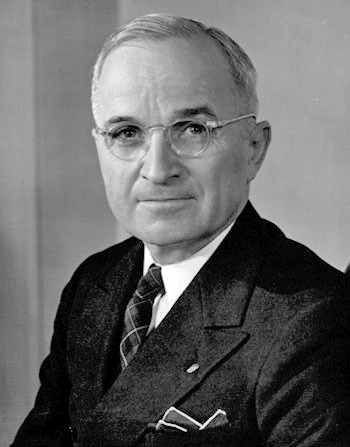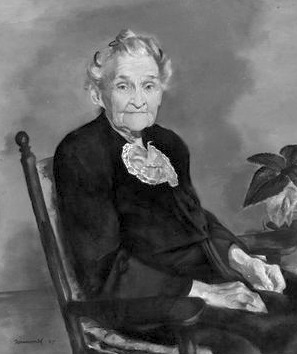Renowned for ending the Pacific War, the Truman Doctrine, and the Marshall Plan among his other significant achievements, Harry S. Truman has left a mark as a champion of the American government. But, before being a pugnacious fighter and the ‘Man of the People’, take a look at how he fared as a child and how his early life molded him to becoming one of the greatest presidents in American history.
The Birth of Harry S. Truman
Harry was born on May 8, 1884, in the little town of Lamar, Missouri. He was the first among the three children of John Anderson Truman, a mule trader and a farmer, and his wife, Martha Ellen Young Truman. Harry was named in honor of his uncle, Harrison Truman. His parents had a difficult time deciding on his middle name. After a few weeks, they agreed on using the letter ‘S’ in reverence to his grandfathers, Solomon Young and Anderson Shipp Truman. Their ancestry traced to mainly English with less German, Scots-Irish, and French.
The Trumans’ Home in Independence, Missouri
After six years, Harry’s parents moved the family, which included Harry’s siblings, Vivian and Mary Jane) in the country-seat town of Independence, Missouri. The town is situated just ten miles east of Kansas City and homed only around 6,000 people. Harry’s family was relatively poor. Fazed by financial difficulties, he needed to work hard, helping carry out chores around the farm.
Harry S. Truman’s Early Education
With the given situation, Harry’s childhood and early educational experience became tough at first. He didn’t attend regular school until he was eight. And, for some reason, her mother, Martha, also sent Harry over a month late in his first-grade year in 1982-1893. He was around six months older than the average students in his class.
Martha Ellen Young Truman, Harry’s Mother
If there’s one word to describe his early years in school, Harry was the typical ‘nerd.’ Born with poor vision, He had to wear thick eyeglasses. His doctor even advised him to refrain from playing sports so that he won’t break them. Her mother, Martha, who was very close to him, also reminded Harry not to engage in any rough-housing. While it was a normal thing boys do, it was necessary to avoid breaking his glasses. With that, his eyesight condition separated him among his peers, and he hardly made any friends. Not mentioning that he was also uneasy with girls even of his age.
Despite this, Harry was a dependable student and a well-behaved boy. Although he started school late, he became very punctual and didn’t miss even any day throughout the school year, not even a record of tardiness. Harry aced his deportment marks on three terms, a feat only ten of his classmates have achieved.
In the first term, her teacher, Ms. Ewin, gave Harry the highest grades in all subjects. IT dipped in the second term, but it was still one of the highest in class. In the third term, Harry regained himself and had a near-perfect mark, getting the highest grades in language, reading, spelling, and numbers. With all that, no doubt that his parents raised a little boy that displayed the highest standard of behavior.
Young Harry’s Interest
While his nerdiness may have hindered him from establishing any friendship, Harry devoted his attention to other worthwhile things. With extra influence from her mother, he became very interested in reading, history, and music. Harry read a lot and studied hard. At five each morning, he rose to practice the piano, and soon enough, he became quite a proficient player. For a short while, he even contemplated becoming a concert pianist.
In 1900, Harry served as a page or a servant for the Democratic National Convention. Thanks to his father who had many colleagues that were active members of the party, Harry was able to establish his insights and political opinion.
Harry’s College Life and Occupation
Like most boys, Harry actually dreamt of becoming a soldier. So, after graduating from high school with flying colors, he enrolled in West Point, the country’s premier military academy. However, his poor eyesight crushed his chances of a commission.
The Kansas City Star newspaper where Harry first worked
Harry then went to Spalding’s Commercial College, a business academy in Kansas City. He studied typing in the summer and shorthand and bookkeeping courses in the fall. But it didn’t last long as his family simply had a hard time supporting his education financially, forcing him to drop out of the school. Harry helped his father in his business though it went for naught as their ventures didn’t succeed. In 1902, he found a job in the Kansas City Star newspaper’s mailroom. Later on, Harry moved to a railroad construction company and worked as a timekeeper. Again, he shifted to two more pursuits, working as a bookkeeper at two different banks in Kansas City.
In 1906, Harry forwent his job at the bank and went back to their farm. He spent many years helping their farm even though it hardly made any profit. He became in charge of the books while also doing manual chores. However, Harry didn’t find satisfaction in both activities. Not mentioning that their finances were also becoming increasingly dire. Truman, then, joined the National Guard, which served as his respite from the farm. It was an integral experience that provided him with masculine companions he never experienced as a child and a glimpse of a bright future lurking for him and the country in the next decades.
US Presidents | ||


